 I have been thinking lately about friendship and particularly about how it is understood and experienced in different cultures. On a social level, companionship is easy here: you need never be alone. For example, if I go to a restaurant unaccompanied, I will invariably be invited to join others or be joined by others. Such situations are almost always interesting and companionable. There are a few people with whom I have formed closer bonds, and we talk and meet regularly. However, it is proving difficult to forge deeper connections. In a culture that I don’t completely understand, I am conscious of the many unknowable, invisible boundary-lines that might be crossed. The process is further complicated by the limitations of language. While my friends’ English is good, it is not always possible to move a conversation to a deeper level. At times, there’s a feeling of never getting to the ‘essential’.
I have been thinking lately about friendship and particularly about how it is understood and experienced in different cultures. On a social level, companionship is easy here: you need never be alone. For example, if I go to a restaurant unaccompanied, I will invariably be invited to join others or be joined by others. Such situations are almost always interesting and companionable. There are a few people with whom I have formed closer bonds, and we talk and meet regularly. However, it is proving difficult to forge deeper connections. In a culture that I don’t completely understand, I am conscious of the many unknowable, invisible boundary-lines that might be crossed. The process is further complicated by the limitations of language. While my friends’ English is good, it is not always possible to move a conversation to a deeper level. At times, there’s a feeling of never getting to the ‘essential’.
Understanding the complexities of the concept of ‘friendship’ from within my own cultural frame of reference is difficult enough. People mean a lot of different things by the word ‘friend’, ranging from ideas about love and morality to more practical, material concerns. Much of what I have read is derived from the Aristotelian notion of friendship i.e. types of friendship and their various dimensions. I have read bits and pieces too on the sociology, anthropology and politics of friendship and about its different forms in different cultural worlds, influenced as it is by the nature of time, space, place and technology as well as social position, gender and age.
Within the broader networks of relationships in our lives, the experience of friendship is considered an important one, particularly in relation to self-identity and self-validation and thereby, ultimately, to the maintenance of social order (through the ‘bonds’ of friendship). The slippery concept of ‘happiness’ too is thought to be affected by the self-esteem, respect and support that flow from the experience of friendship, and the feelings of being loved for one’s own sake by significant others like oneself. It’s strange then that, as most analysts point out, it remains relatively understudied in contemporary academia.
Because of the importance of family in Bangladesh, and because everybody marries at a relatively young age, social life centres round family activity. Family ties dominate a person’s network of relationships. There are few older single people: in fact, I haven’t met any. Without a locally recognisable family label, I have a certain social anonymity and am not therefore easy to identify. Most socialising occurs in the family home. Alcohol is not a feature of Muslim life and so there are no pubs, wine-bars, clubs etc. Catching up with a friend, over coffee for example, is not something that happens a lot here either, especially amongst older people. But there is no perceived need for such outlets: most people have large family networks. Even if people wanted to meet casually to ‘hang out’, what my friend Seraj calls the ‘clumsiness’ of daily life in Dhaka militates against such meetings. My experiences relate to living in Dhaka: I often wonder what my social experiences might have been like had I been stationed in rural Bangladesh.
Most of the friends I have made are male. I think this is because, as a foreign woman, I have the ability to move freely in the more public lives of men e.g. on the streets, at tea stalls, travelling, etc. The majority of my colleagues at work are men too. I am always treated very respectfully by the men I meet, though sometimes it feels as though our exchanges are on a man-to-man basis, which can get a bit confusing! Opportunities to meet women present less frequently, unfortunately. Furthermore, it has been my experience that men are more interested and more forthright in initiating friendships than women.
I met two of my friends indirectly through work: they just happened to be in the building and our paths crossed. When I first met Faruqe, he was working at the time for Social Services at the Ministry of Social Welfare with children at risk (see post 35). He was participating in workshops for street children that were taking place in the NILG. Our first meeting was during Ramadan (see post 37) and despite the fact that Faruqe was fasting, he insisted in arranging lunch for me (he was arranging it for the children who don’t fast). On another evening, I arrived back in my office after a meeting to find a box of Iftar snacks on my desk, with a little note that said they were from Faruqe and the children. It was so kind and thoughtful, and was all the more poignant given how difficult it was proving to get to really know people at work. He had studied anthropology (in Jahangirnagar University) and so we had that in common. We have had some interesting conversations so far about work and religion and research. Faruqe is very interested in travel too, and we plan to do some travelling together at weekends. He subsequently joined the ICDDR,B (the International Centre for Diarrhoeal Disease Research.)
Seraj put his head around my door at work one day, looking for somebody else in the building. We had an immediate connection and talked for a long time that first day. He works in the Ministry of Fisheries and has spent time training in Iceland. Seraj is married to Sonja and they have two little boys: I met them all in their home when Seraj invited me for dinner. Since then I have enjoyed their friendship, warm hospitality and delicious food over lovely evenings, and have met some of their extended family and neighbours during social occasions too. I am glad that Seraj got lost that day in the NILG. He always makes my day when he drops in unexpectedly, or phones me to catch up.
In the absence of deeper friendships, there are times that I feel alone here too though. Rabindranath Tagore (see post 29) in Stray Birds says:
There are tracts in my life that are bare and silent.
They are the open spaces where my busy days had their light and air. (CCCXXIII)
I like this and I very much recognise the need for such days. I am not sure if Rabindra’s ‘bare and silent’ tracts equate with ‘solitariness’, but I find myself increasingly capable of a sort of ‘solitary’ happiness – especially (and almost worryingly so) since I arrived in Bangladesh. During such times, I rely on a rich internal life, more aware than usual of the innate aloneness of the human condition. I am thankful that I have the inward resources afforded me by education to ward off the pain of mental loneliness. This is not to deny the need to reach out, or the need for friendship – of which I have always been aware too. I remember watching ‘Anne of Green Gables’ as a child, and being captivated by Anne’s idea of friendship as a meeting of ‘kindred spirits’. Later, I recognised this idea of ‘soul mates’ in the Aristotelian notion of ‘character friendship’. This, for Aristotle, is the most perfect form of friendship between people who share a similar commitment to life, and possibly therefore a similar destiny also. It is the discovery that you are not alone in the world because you have touched someone else and they have touched you (psychically, not physically!). Sadly, I discovered too that most people never find this kind of deep, intimate, sharing friendship: there’s a sort of existential rarity to such a complete meeting of minds. In any case, life today (always busy, in transit, etc.) militates against the formation of such meaningful, life-long friendships that require plenty of unstructured time (the ‘sharing of salt’ in Aristotelian terms). Maybe ‘solitary happiness’ provides a sort of inward fortification in such circumstances. (The danger is that this rich, internal life might seem preferable when contrasted with the poverty of everyday experience, especially in the absence of those elusive, deep, meaningful friendships.)
But enough philosophising! Many of my most vivid memories in Bangladesh involve time spent in the company of less-constant friends, though friends nonetheless. I have discovered over time that there’s a kind of intensity to friendships that form when you travel with people, and I have had many such meaningful, though brief, associations in Bangladesh. While I appreciate the freedom to share in people’s lives here for a while, I look forward too to re-establishing that easy rapport with friends that comes from being on the same wave-length. I miss friends from home: I miss the effortlessness of pleasurable socialising. Sadly, I may not have any friends whatsoever left after this journey, because I have been so bad at keeping in touch.
A few photographs follow – other photos of ‘friends’ are dispersed throughout blog. (Unfortunately, since Cooliris was acquired by Yahoo my lovely photo walls no longer work. 😦 I have replaced them with links to a web album until such time as I can find a better solution.)
PHOTO SLIDESHOW
Click on image below and then on the top-left image (8 photographs). Enjoy!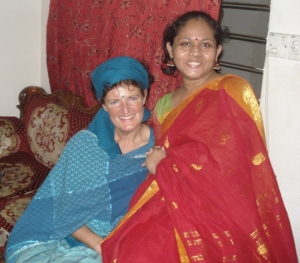

 On March 15th 2009 I left Ireland to spend 13 months in Bangladesh as a
On March 15th 2009 I left Ireland to spend 13 months in Bangladesh as a 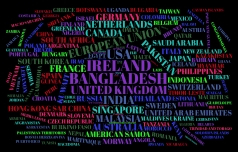




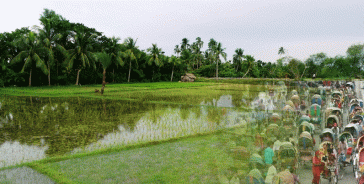
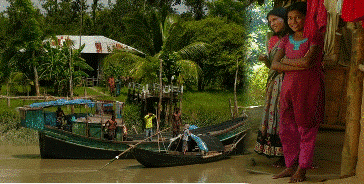
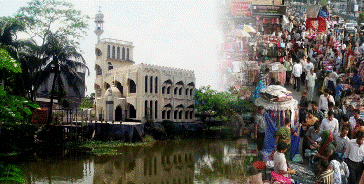
 I am especially conscious that I am writing about an Eastern culture from the perspective of a Western observer. The opinions expressed are my own - unless otherwise stated. Should you perceive inaccuracy or misrepresentation, in this regard or in any other, or you would like to add something, I would welcome your observations. Leave a comment below the relevant post(s).
I am especially conscious that I am writing about an Eastern culture from the perspective of a Western observer. The opinions expressed are my own - unless otherwise stated. Should you perceive inaccuracy or misrepresentation, in this regard or in any other, or you would like to add something, I would welcome your observations. Leave a comment below the relevant post(s).
Assalamu Alikum from Dhaka friend. Long time now since we connected. Are you still speak Bangla? I hope. The blog has many reading. More over 150,000. Good result. I still like reading. Hope life is good.
Walaikum Assalam Abdul! How lovely to get a message from Dhaka. Yes, it is indeed a long time now – over 10 years! Hard to believe. I remember that lovely evening in Dhanmondi when we shared samosas at a food stall near the lake. In one sense, it seems like yesterday and in another, it seems like a lifetime ago. (I’d love a samosa now!!)
No, I’m afraid my Bangla would now need a lot of work ☹.
Yes, the number of visitors to my blog continues to rise, much to my surprise, considering that my last ‘post’ was over 10 years ago! I don’t really think of it as a ‘blog’ (in terms of conforming to ‘branding’, ‘lifestyle’, ‘traffic driving’, ‘leads’, ‘short, frequent posting’, etc.): I think of it more as a memoir, maybe?
I am, of course, delighted to see ‘visitors’ especially since it could be considered a bit idiosyncratic and would certainly not appeal to the masses! But, to think that over 14,000 people per year have been viewing something that I wrote, for the past 10 years (c. 270 people per week or 40 people per day) amazes me!
And I love when I get a comment or a reminder, like yours Abdul. So thank you. I hope life is good for you too, especially during this awful pandemic. Best wishes……